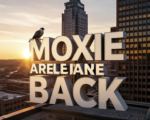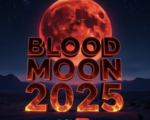The Indiana Capital Chronicle has filed a lawsuit against the Indiana Department of Corrections (IDOC), accusing the agency of failing to disclose how much it paid for the lethal injection drug, pentobarbital. The lawsuit claims the IDOC violated Indiana’s Access to Public Records Act by not responding to requests for records in a timely manner.
Dispute Over Public Access to Financial Information
The lawsuit centers around the IDOC’s refusal to provide details about the cost of pentobarbital, a drug used in lethal injections for executions in the state. This comes after former governor Eric Holcomb’s announcement in June 2024 that Indiana would resume executions, following a 15-year hiatus, once it obtained the drug. Joseph Corcoran’s execution on December 18, 2024, marked the state’s return to capital punishment.
The Indiana Capital Chronicle argues that the public has a right to know how taxpayer money is being spent, especially in a matter as serious as executions. The news outlet has repeatedly requested information on the cost of the drug, but their requests have gone unanswered by the IDOC.

Legal Expert Weighs In on Government Transparency
Robert Dunham, a legal expert and director of the Death Penalty Policy Project, weighed in on the issue, stating that the IDOC’s lack of transparency reflects broader flaws in public policy. “If the government says, I’m gonna spend your money, I’m not gonna tell you how I’m gonna spend your money, I’m not gonna tell you how much money we’re gonna spend, but trust me I’m the government. That should raise all sorts of red flags,” Dunham said.
This sentiment echoes a wider concern about government accountability and the need for transparency when taxpayer funds are involved in sensitive areas like capital punishment.
Court to Decide on Public Records Release
The plaintiffs in the lawsuit are seeking a court order that would compel the IDOC to release the requested records. They also aim to ensure that future requests for records are handled in accordance with Indiana’s public records laws.
The outcome of this case could have significant implications for public access to government spending, especially in relation to controversial issues like the death penalty. As of now, the IDOC has not provided a response to the legal action.














